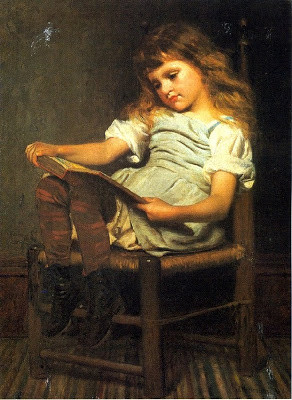Literacy Blogs
- All
- 3-cueing
- academic learning time
- academic vocabulary
- accommodations
- accountability testing
- Active View of Reading
- adolescent literacy
- afterschool programs
- alphabet
- amount of instruction
- amount of reading
- argument
- assessment
- auding
- author awareness
- automaticity
- balanced literacy
- beginning reading
- Book Buddies
- Book Flood
- challenging text
- classroom organization
- close reading
- coaching
- cohesion
- Common Core State Standards
- complex text
- comprehension strategies
- content area reading
- context analysis
- curriculum materials
- Daily 5
- decoding
- departmentalization
- DIBELS
- dictionary skills
- digital texts
- disciplinary literacy
- dyslexia
- early interventions
- effective teachers
- Emily Hanford
- executive function
- family literacy
- fingerpoint reading
- foundational skills
- graphic novels
- guided reading
- heterogeneous grouping of students
- homework
- improving reading achievement
- independent reading
- independent reading level
- informal reading inventories
- informational texts
- instructional level
- invented spelling
- jigsaw instruction
- knowledge
- leadership
- learning disabilities
- Lexiles
- linguistic comprehension
- listening comprehension
- literacy charities
- literacy policy
- literary interpretation
- main idea
- morphology
- motivation
- narrative text
- National Early Literacy Panel
- nonsense words
- oral language
- oral reading fluency
- paraphrasing
- Pause, Prompt, Praise (3P)
- personalized learning
- phonemes
- phonemic awareness
- phonics
- press and media
- principals
- prosody
- Readers' Workshop
- reading comprehension
- reading disabilities
- reading intervention
- reading levels
- reading models
- Reading Recovery
- reading research
- reading skills
- reading strategies
- reading to children
- reading wars
- reading-writing relations
- remedial reading
- rereading
- Response to Intervention
- Scarborough's Rope
- science of reading
- seatwork
- semantics
- sentence comprehension
- sequence of instruction
- set for consistency
- set for variability
- shared reading
- shared reading
- sight vocabulary
- simple view of reading
- Simple View of Reading
- small group instruction
- social studies
- sound walls
- Special Education
- speech-to-print phonics
- spelling
- stamina
- summarizing
- Sustained Silent Reading
- syllabication
- syntax
- syntax
- testing
- text complexity
- text interpretation
- text reading fluency
- text structure
- theme
- think-pair-share
- trauma
- visualization
- vocabulary
- word walls
- writing
- zone of proximal development (ZPD)
The Lindsay Lohan Award for Poor Judgment or Dopey Doings in the Annals of Testing
Lindsay Lohan is a model of bad choices and poor judgments. Her crazy decisions have undermined her talent, wealth, and most important relationships. She is the epitome of bad decision making (type “ridiculous behavior” or “dopey decisions” into Google and see how fast her name comes up). Given that, it is fitting to name an award for bad judgment after her. Who is the recipient of the Lindsay? I think the most obvious choice would be PARCC, one of the multi-state consortium test developers. According to Education Week, PARCC will allow its reading test to be read to struggling readers. I assume if students suffer from dyscalculia, they’ll be able to bring ...
Close Reading for Beginning Readers? Probably Not
Teacher question: I am a first grade teacher. My principal has mandated that all classes K-5 do Close Reading. Is it appropriate for all ages? It seems to me that the texts at K/1 are not likely to be complex enough and that the students at this age are too concrete in their thinking. Shanahan response: Good question. I share your concerns. There are very few articles or stories appropriate for K/1 that would make any sense for close reading. The content usually just isn’t deep enough to bear such close study (and, frankly, if you look at the comprehension standards themselves, specifically ...
Should We Retain Kids to Raise Reading Achievement? Part II
Blast from the Past: This entry first appeared June 10, 2013 and was reposted on May 1, 2021. This two-part blog entry argued against the primary grade retention policies that many states were adopting at that time. I provided both an analysis of the research that retention proponents were relying on and the highlights of the extensive body of research on retention that they were ignoring. Neither the outcomes of policy initiatives nor new research over the past 8 years have changed my thinking. However, what makes this informaton timely is the COVID pandemic. Data so far suggest that our ...
Should We Retain Kids to Raise Reading Achievement? Part I
Teacher question: I was wondering what your thoughts are on retention of special education students due to the higher demands of the common core standards. Our school uses the "Teacher's College Reading and Writing Project" Benchmark Reading Levels as our primary reading assessment. Student report card grades in reading are based on this assessment. Two years ago, a Kindergarten student could be on level B, and be promoted. Now, two years later, they must be on Level D/E. The pattern continues throughout the grades, what was acceptable a few years ago as grade level is no longer the case. This presents a problem ...
Disciplinary Writing
Teacher question: I am writing to you for some suggestions and recommendations concerning working with science and social studies teachers in light of the writing standards in the common core. I am a former English teacher with 35 years of experience and have, for the past seven years, worked to develop and present workshops and classes for content area teachers in reading – focusing on both disciplinary and content literacy. I have been asked by a school district to provide professional development for secondary science and social studies teachers in implementing the writing standards in the common core. Their suggestion was to ...
Couldn't Have Said It Better Myself
Teachers, who otherwise are supportive of the common core, often ask me if I think it is fair that they be evaluated on the basis of test scores from tests they have never seen and on content that they are just starting to teach--often without a lot of supporting materials or professional development. In fact, that most recently happened on Friday when I was in Franklin, TN. I always give pretty much the same answer. I don't believe the test-based teacher evaluation schemes are ready for prime time, if it were my choice, we wouldn't make this many big changes at the ...
Some Recent Questions, Explicit and Implied
Aren’t non-fiction and informational text the same thing? No, they are not. Informational text is factual, but that isn’t the point (or it isn’t the only point). CCSS is emphasizing the reading of literary and informational text to ensure that students are proficient with a wide variety of text. If the distinction was just fact vs. fiction, then text could be limited to narratives. Kids need to learn how to read exposition and argument as much as stories. Each of those types of text has different purposes, structures, graphic elements, text features, etc. And, that’s the point: exposing kids to all ...
A Time For Humility
This blog first posted April 23, 2013; and was reposted on March 22, 2018. Close reading isn't as hot an issue as then, though some of these problems are still coming up. My correspondent was upset. She was writing because her teaching evaluation had not gone well. She was teaching what was supposed to be a "close reading" lesson and her evaluator thought she had done a terrible job. The reason she was writing me was because she had modeled her lesson off of my close reading presentation. The supervisor was concerned that she asked too many "right there" questions and not enough higher order ones. The ...
A Query About Comprehension Assessment
I received this letter recently and below is my response. I bet this goes on in lots of schools (unfortunately). Dear Dr. Shanahan, What do you believe to be best practice in assessing a student's reading comprehension? As elementary schools turn to the Professional Learning Community framework, teachers are expected to devise tests within their grade level teams to test for reading skills like inferring, author's purpose, cause & effect...etc... In your comprehension blog, however, you stated that it was difficult to assess these skills separately since reading is an integrated process. That makes a lot of sense. Are these Professional Learning Communities misdirected ...
Backwards Design and Reading Comprehension
Many schools are into what they call “backward design.” This means they start with learning goals, create/adopt assessments, and then make lessons aimed at preparing kids for those assessments. That sounds good—if you don’t understand assessment. In some fields an assessment might be a direct measure of the goal. If you want to save $1,000,000 for retirement, look at your bank account every six months and you can estimate of how close you are to your goal. How do you get closer to your goal? Add money to your accounts… work harder, save more, spend less. Other fields? Doctors assess patient’s temperatures. ...

-Het-grote-interieur,-1939.jpg)







